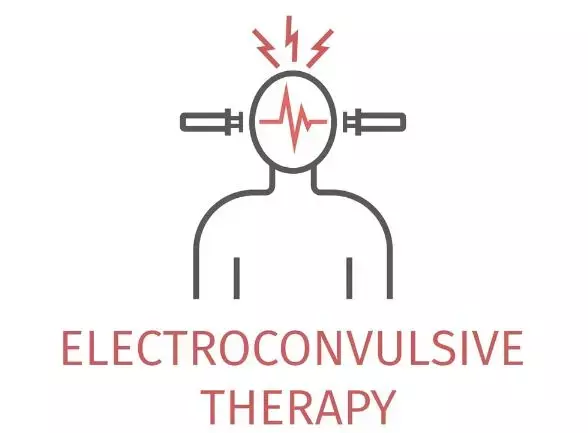- Home
- Medical news & Guidelines
- Anesthesiology
- Cardiology and CTVS
- Critical Care
- Dentistry
- Dermatology
- Diabetes and Endocrinology
- ENT
- Gastroenterology
- Medicine
- Nephrology
- Neurology
- Obstretics-Gynaecology
- Oncology
- Ophthalmology
- Orthopaedics
- Pediatrics-Neonatology
- Psychiatry
- Pulmonology
- Radiology
- Surgery
- Urology
- Laboratory Medicine
- Diet
- Nursing
- Paramedical
- Physiotherapy
- Health news
- Fact Check
- Bone Health Fact Check
- Brain Health Fact Check
- Cancer Related Fact Check
- Child Care Fact Check
- Dental and oral health fact check
- Diabetes and metabolic health fact check
- Diet and Nutrition Fact Check
- Eye and ENT Care Fact Check
- Fitness fact check
- Gut health fact check
- Heart health fact check
- Kidney health fact check
- Medical education fact check
- Men's health fact check
- Respiratory fact check
- Skin and hair care fact check
- Vaccine and Immunization fact check
- Women's health fact check
- AYUSH
- State News
- Andaman and Nicobar Islands
- Andhra Pradesh
- Arunachal Pradesh
- Assam
- Bihar
- Chandigarh
- Chattisgarh
- Dadra and Nagar Haveli
- Daman and Diu
- Delhi
- Goa
- Gujarat
- Haryana
- Himachal Pradesh
- Jammu & Kashmir
- Jharkhand
- Karnataka
- Kerala
- Ladakh
- Lakshadweep
- Madhya Pradesh
- Maharashtra
- Manipur
- Meghalaya
- Mizoram
- Nagaland
- Odisha
- Puducherry
- Punjab
- Rajasthan
- Sikkim
- Tamil Nadu
- Telangana
- Tripura
- Uttar Pradesh
- Uttrakhand
- West Bengal
- Medical Education
- Industry
Routine use of Sevoflurane not recommended for electroconvulsive therapy, claims study

There may not be compelling evidence favouring sevoflurane use for electroconvulsive therapy, except in cases where intravenous access is difficult, affirms a latest study. The findings have been put forth in Journal of Psychiatric Research.
Sevoflurane is the most commonly used inhaled anaesthetic in electroconvulsive therapy (ECT). The objective of this recent study was to provide an up-to-date and comprehensive review on how the use of sevoflurane affects seizure adequacy (seizure duration and postictal suppression index [PSI]) and circulatory dynamics in ECT.
So, researchers performed a meta-analysis of RCTs that investigated seizure adequacy and circulatory dynamics in patients treated with ECT using sevoflurane (sevoflurane group) and intravenous anaesthetics (non-sevoflurane group). A total of 12 RCTs (377 patients and 1339 ECT sessions) were included.
Results revealed some interesting facts.
• Sevoflurane significantly decreased the electroencephalogram (EEG) seizure durations in comparison with intravenous anaesthetics, whereas no significant difference was observed in PSI (EEG: 9 studies, standardized mean difference (SMD) = 0.74, 95% confidence interval (CI) = −1.11 to −0.38, p = 0.0002; PSI: 4 studies, SMD = −0.06, CI −0.13 to 0.25, p = 0.59).
• The use of sevoflurane in ECT significantly increased heart rate (HR) compared with intravenous anaesthetics (9 studies, SMD = 0.31, CI 012–0.51, p = 0.004).
• In the pre-planned subgroup analysis, sevoflurane significantly reduced seizure duration compared with other types of anaesthetics, including propofol, barbiturates and ketamine.
• Furthermore, it was found that the risk of adverse events in ECT with sevoflurane were not significantly different from intravenous anaesthetics (6 studies, risk ratio = 1.33, CI 0.95–1.86, p = 0.09), with agitaion being the most common adverse effects.
• The results of study suggest that using sevoflurane for ECT significantly reduces seizure duration, increases maximum HR and brings about no difference in the adverse event risk compared with those using intravenous anaesthetics for ECT.
"This study was the first meta-analysis that investigated the effects of sevoflurane on ECT by comparing seizure durations, PSI and circulatory dynamics. In this meta-analysis, sevoflurane significantly reduced seizure duration than intravenous anaesthetics.Sevoflurane significantly increased post ECT HR compared to intravenous anaesthetics. To summarise, this meta-analysis revealed that using sevoflurane for ECT significantly reduces seizure duration, increases maximum HR and brings about no difference in adverse event risk compared with those using intravenous anaesthetics. The comparison of sevoflurane with propofol revealed no significant differences in PSI. Therefore, there may not be compelling evidence favouring the use of sevoflurane for ECT, except in cases where intravenous access is difficult. However, because of the small number of sufficiently managed quality RCTs, large-scale quality studies are warranted in future."the team concluded.
For full article follow the link:https://doi.org/10.1016/j.jpsychires.2021.06.030
Source: Journal of Psychiatric Research
Dr Satabdi Saha (BDS, MDS) is a practicing pediatric dentist with a keen interest in new medical researches and updates. She has completed her BDS from North Bengal Dental College ,Darjeeling. Then she went on to secure an ALL INDIA NEET PG rank and completed her MDS from the first dental college in the country – Dr R. Ahmed Dental College and Hospital. She is currently attached to The Marwari Relief Society Hospital as a consultant along with private practice of 2 years. She has published scientific papers in national and international journals. Her strong passion of sharing knowledge with the medical fraternity has motivated her to be a part of Medical Dialogues.
Dr Kamal Kant Kohli-MBBS, DTCD- a chest specialist with more than 30 years of practice and a flair for writing clinical articles, Dr Kamal Kant Kohli joined Medical Dialogues as a Chief Editor of Medical News. Besides writing articles, as an editor, he proofreads and verifies all the medical content published on Medical Dialogues including those coming from journals, studies,medical conferences,guidelines etc. Email: drkohli@medicaldialogues.in. Contact no. 011-43720751


